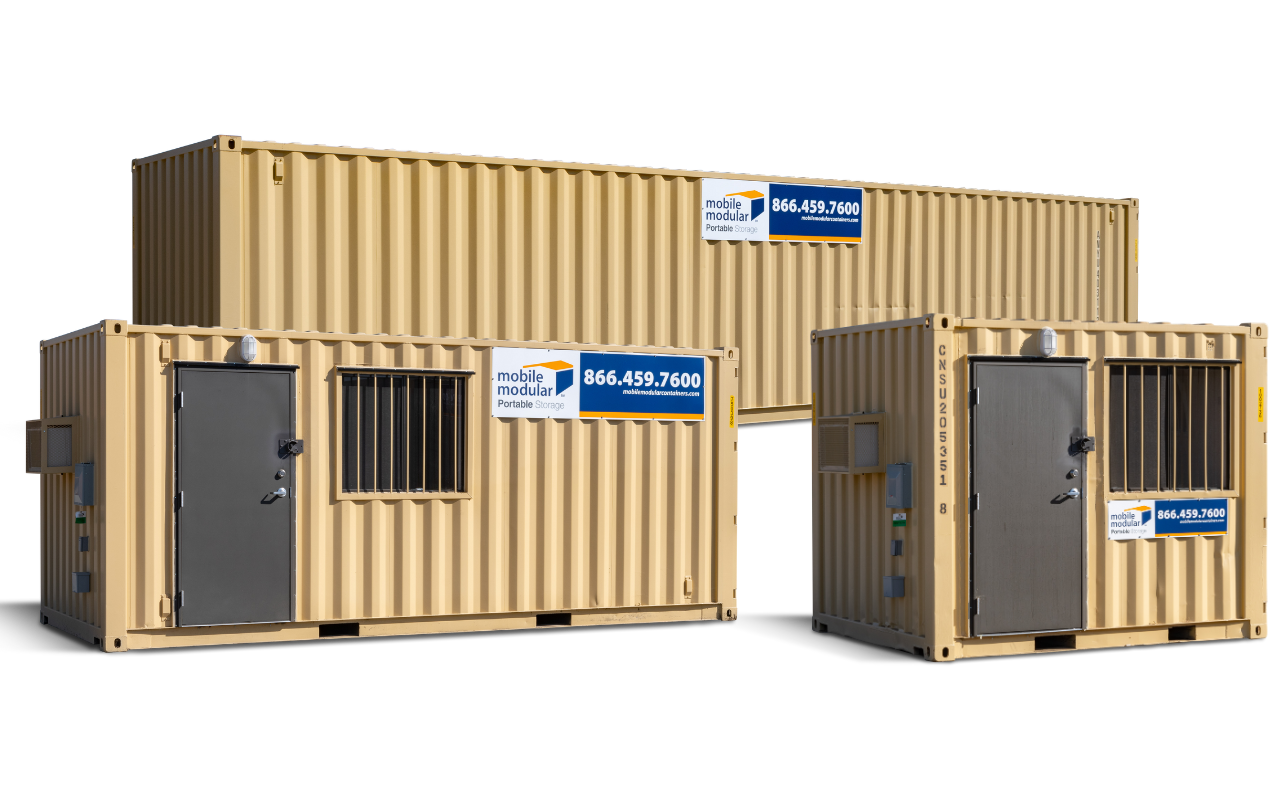
BENEFITS

Versatility
You can store furniture, stock, important documents, machinery, or tools in the containers and use them on industrial sites or for commercial establishments.

Security
The corrugated stainless-steel construction makes containers highly secure and able to withstand many harsh weather conditions. They also come equipped with high-security HASP locks and optional high-security shackle puck locks.

Cost-Effective
Shipping containers are relatively inexpensive compared to other building materials, which makes them an attractive option for budget-conscious projects.

Mobility
Using flatbed or tilt bed trucks, containers can be easily transported if you move your commercial establishment and set it up at a new location hassle-free.
Industries that rent
portable storage containers

Construction

Industrial Manufacturing

Petrochemical

Retail

Education

Government

Healthcare

Automotive

Agriculture
STORAGE CONTAINERS VS. TRAILERS
When considering possible options for storage, transportation or modular offices, many people unfamiliar with the industry often misidentify storage containers and storage trailers. Although both sometimes serve the same purpose, each option has significant differences that can affect elements like functionality, durability, security and ease of transport. Before committing to a container or trailer, careful research is critical for determining the most beneficial solution.
WHAT IS A STORAGE CONTAINER?
Decades ago, storage containers served primarily as shipping vessels, particularly for ocean freight services. These containers resemble large metal boxes with doors, floors, walls and a seamless roof. They come in various sizes and are stackable on ships, railcars or flatbed trailers for easy transport.
In recent years, storage containers have become more practical and versatile in many residential, commercial and industrial uses. They can efficiently handle a broad application range, from storage units for construction equipment to extra warehouse space, and mobile offices.
WHAT IS A STORAGE TRAILER?
The defining factors of a storage trailer are its wheels and a hitch that connects to a tractor for transport. Because the unit has wheels, the floor sits off the ground several feet at dock level. This extra elevation makes these trailers the perfect solution for transporting products and materials over short distances, particularly if they require unloading and loading at several distribution points. These features make trailers more accessible to warehouse forklifts and other material handling equipment.
DIFFERENCES BETWEEN STORAGE CONTAINERS AND STORAGE TRAILERS
The primary difference between storage containers and storage trailers is that containers are accessible without needing a ramp ladder or portable stairs. Applications requiring multiple vessels over longer shipping distances usually benefit from storage containers because they are stackable and can travel together.
Most storage containers are airtight and much more secure than storage trailers, offering increased protection from intruders and the elements. In addition, storage containers typically require less maintenance than trailers because of their superior durability. Containers are also easier to modify for customized applications, allowing users to add features like interior lighting, shelving, plumbing fixtures and more.
The biggest challenge with using trailers as offices or restaurants is they require stairs or ramps that are safe for employees or patrons. Trailers also endure high levels of wear and tear during transport, making them a less-than-ideal modular solution for applications requiring frequent moving.
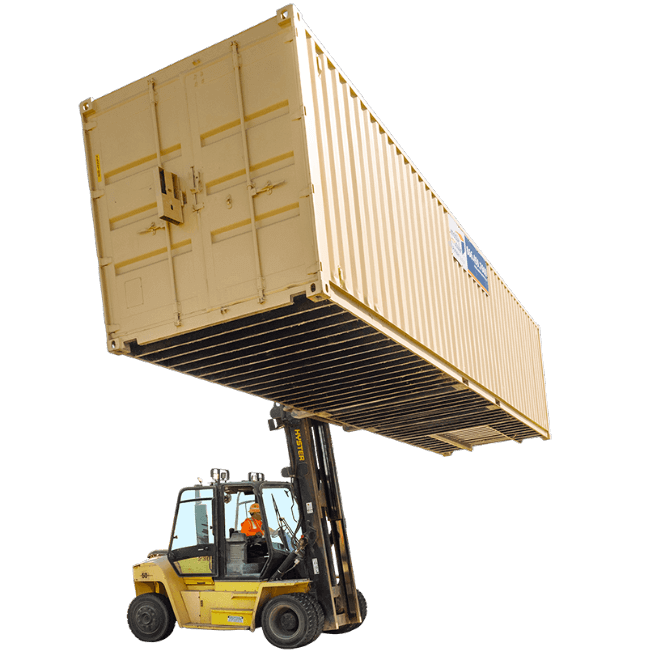
Frequently Asked Questions
Typically, the office containers that are widely available for rent are constructed using corten steel, which is also referred to as weathering steel. This material has characteristics that allow for easy welding and are resistant to rust, making it a favored choice for fulfilling both moving and storage requirements.
When renting office containers from a typical storage company, they are made from steel, designed to endure extreme temperature changes. However, steel alone cannot guarantee complete waterproofing, and it is vulnerable to corrosion. Fortunately, customers can take measures to prevent this deterioration by utilizing anti-corrosion coatings, implementing regular maintenance, storing containers in areas free from condensation, and adding a rubber door to prevent moisture from entering the container. These practices can aid in preserving the office container for prolonged use.


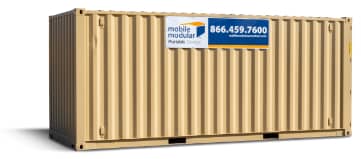
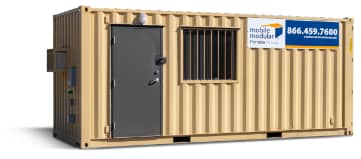
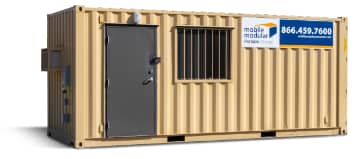
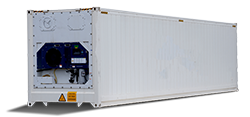
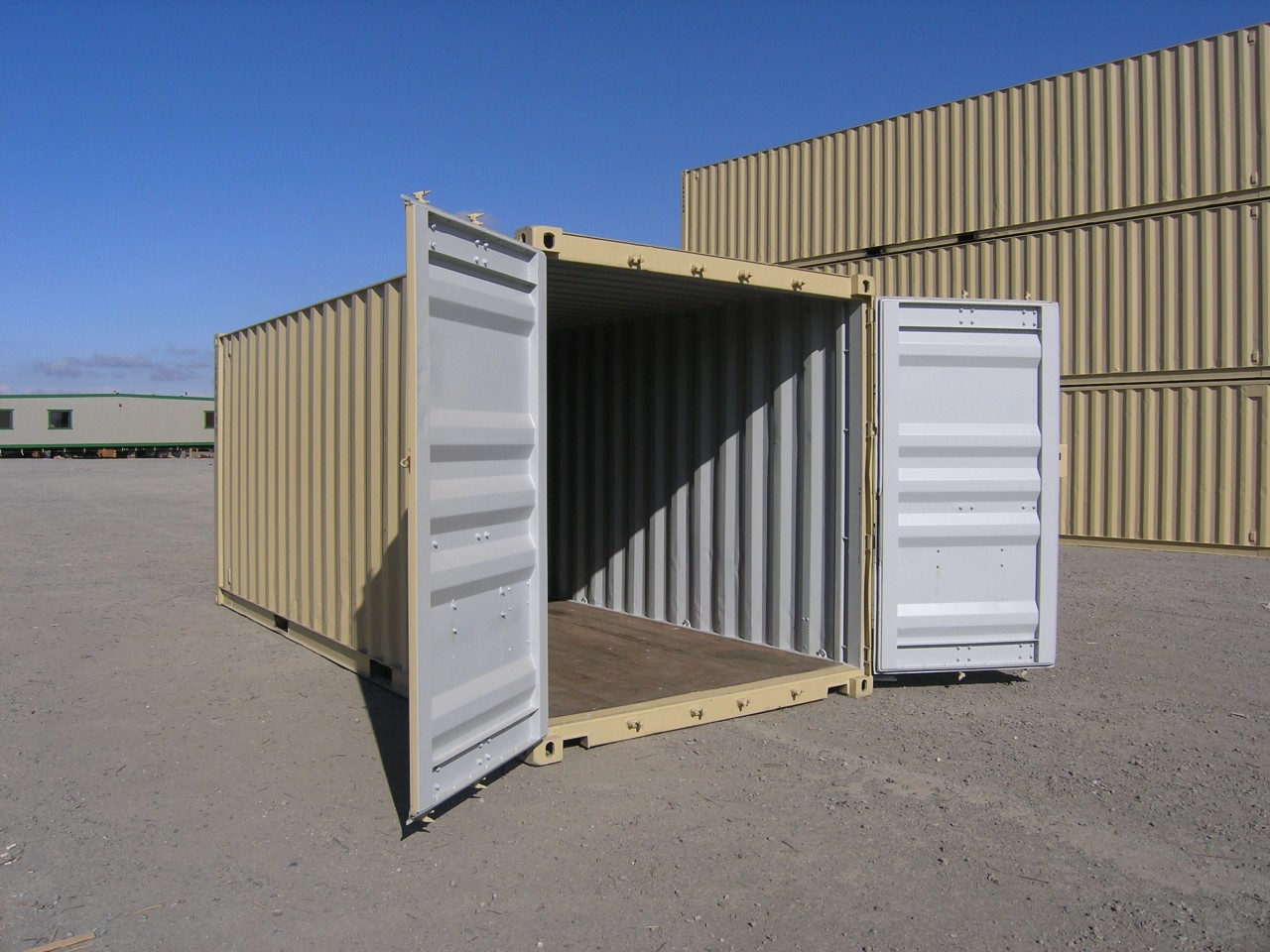
.svg)
.svg)
.svg)

